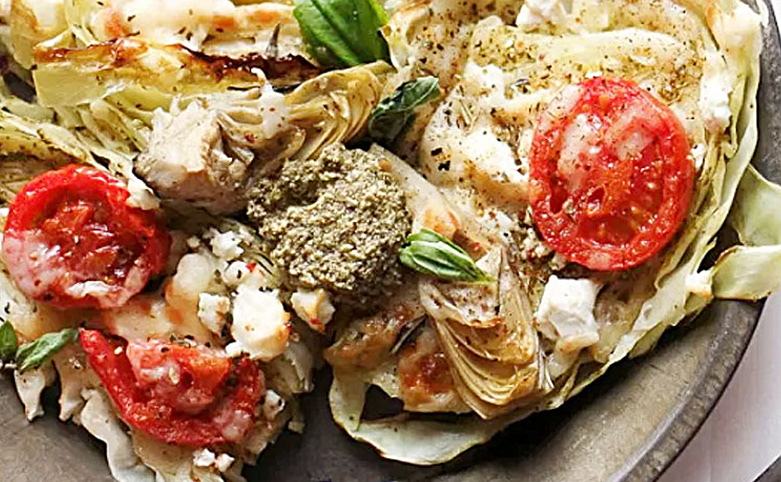
Looking for EZ steps for healthier eating for you and your family – add cabbage to your shopping list
 Cabbage belongs to the cruciferous vegetable family and provides a myriad of nutrients, including fiber, folate, calcium, potassium and vitamins A, C and K. Cabbage contains phytonutrients that act as antioxidants to reduce your risk of certain cancers. Fresh, green leafy cabbage is incredibly nutritious; but very low in fat and calories. 100 grams of leaves carry just 25 calories. The vegetable is a storehouse of phytochemicals like thiocyanates, indole-3-carbinol, lutein, zeaxanthin, sulforaphane, and isothiocyanates. These compounds are potent antioxidants and known to help protect against breast, colon, and prostate cancers and help reduce LDL or “bad cholesterol” levels in the blood.
Cabbage belongs to the cruciferous vegetable family and provides a myriad of nutrients, including fiber, folate, calcium, potassium and vitamins A, C and K. Cabbage contains phytonutrients that act as antioxidants to reduce your risk of certain cancers. Fresh, green leafy cabbage is incredibly nutritious; but very low in fat and calories. 100 grams of leaves carry just 25 calories. The vegetable is a storehouse of phytochemicals like thiocyanates, indole-3-carbinol, lutein, zeaxanthin, sulforaphane, and isothiocyanates. These compounds are potent antioxidants and known to help protect against breast, colon, and prostate cancers and help reduce LDL or “bad cholesterol” levels in the blood.
Mediterranean Roasted Cabbage Steaks with Basil Pesto & Feta

Fresh cabbage is an excellent source of natural antioxidan; vitamin C. Provides 36.6 mg or about 61% of RDA per 100 g. Regular consumption of foods rich in vitamin-C helps the human body develop resistance against infectious agents and scavenge harmful, pro-inflammatory free radicals.
Total antioxidant strength measured regarding oxygen radical absorbance capacity (ORAC value) is 508 µmol TE/100 g. Red cabbage has higher antioxidant value, 2252 µmol TE/100 g.
It is also rich in essential vitamins such as pantothenic acid (vitamin B-5), pyridoxine (vitamin B-6) and thiamin (vitamin B-1). These vitamins are essential in the sense that our body requires them from external sources to replenish.
It also contains an adequate amount of minerals like potassium, manganese, iron, and magnesium. Potassium is an important component of cell and body fluids that helps controlling heart rate and blood pressure. Manganese used by the body as a co-factor for the antioxidant enzyme, superoxide dismutase. Iron required for the red blood cell formation.
Cabbage is an excellent source of vitamin-K, provides about 63% of RDA levels. Vitamin-K has the potential role in bone metabolism through promoting osteoblastic activity. Sufficient amounts of vitamin-K in the diet contribute immensely to your bone health. Also, vitamin-K also has established a role in the cure of Alzheimer’s disease patients by limiting neuronal damage in their brain.
Always consult with your doctor before changing your eating choices. Too much cabbage can have negative effects i.e. interfere with blood thinning medications and affect thyroid function in iodine deficient patients.
If you need recommendations on how to take healthy steps or have questions on how whole and healthy living can lead you into a healthier state of being please reach out. We can absolutely help you make the change you desire.
